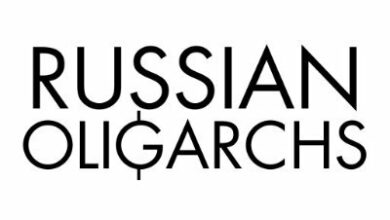Swiss Banking Secrets: The Ongoing Saga of a Russian Oligarch Money Transfer from the French Riviera
Swiss Banking Secrets Accounts Linked to Alexander Ponomarenko’s Daughter and Partner
Alexander Ponomarenko, the head of Mosvodokanal, a key player in the supply of drinking water to the Moscow metropolitan area, finds himself under intense scrutiny. Recent investigations have revealed suspicious activities involving his daughter and business partner, who is suspected of transferring substantial funds into Swiss Banking Secrets during a time of ongoing conflict. This report delves into the intricate web of property acquisitions, ownership transfers, and suspicious transactions, shedding light on the potential implications of these activities.

Property Acquisitions and Ownership Transfer
In 1998, Alexander Ponomarenko made headlines across the globe with his extravagant purchase of a €91 million property in Saint-Jean-Cap-Ferrat, nestled along the picturesque Côte d’Azur. The property comprised multiple luxurious villas, and its acquisition raised eyebrows not only for its sheer extravagance but also for what would follow in the years to come.
What adds a layer of intrigue to this acquisition is the subsequent transfer of a significant portion of the property to Natalia Rozhkova. While the precise nature of the connection between Rozhkova and Ponomarenko remains somewhat elusive, this property transfer raises questions regarding familial ties and potential financial dealings between the two parties.
Investigation and Data Sources
The unfolding of this complex narrative has been made possible through a collaborative effort between investigative teams and a media consortium. Key to these revelations has been the examination of Russian documents and data from a Zurich-based wealth manager. The genesis of this data trail can be traced back to an audacious ransomware attack that targeted the wealth manager’s operations.
This breach, which led to the exposure of confidential client information, inadvertently opened a window into the secretive world of offshore financial transactions. The data retrieved from the Zurich wealth manager’s files has played a pivotal role in uncovering the suspicious financial activities linked to Ponomarenko’s daughter and partner.
Suspicious Transactions
The timeline of these activities is particularly striking. In June 2022, as the United Nations convened in Geneva to condemn atrocities against Mariupol civilians, Ponomarenko’s daughter executed a rather inconspicuous move – she opened an account at Reyl Bank in Zurich. What followed, however, was far from inconspicuous. Within a short span, a staggering $9.5 million found its way into this newly minted account.

The revelations do not end there. By November 2022, Ponomarenko’s partner was found to be in possession of approximately $26 million from Julius Baer and an additional $4.5 million from Pictet bank. These transactions, when viewed in the context of the ongoing conflict and international sanctions, have understandably raised red flags within the financial community and among regulatory bodies.
Impact of Golden Passports
One of the factors that complicate the regulatory landscape in this case is the phenomenon of “golden passports.” Switzerland, like many other countries, has imposed limits on deposits from Russian citizens in an effort to curb the flow of potentially illicit funds. However, these restrictions are not insurmountable, especially when individuals hold passports or residency in European Union (EU) nations.
Ponomarenko’s partner and daughter fall into this category, possessing passports or residency rights in EU member states. This exempts them from being classified as “Russian customers” under . While this may appear to be a legitimate loophole, it is essential to note that banks should have exercised due diligence and raised concerns.
Gretta Fenner, the director of the Basel Institute on Governance, provides crucial insights into this matter. She points out that even though Alexander Ponomarenko himself is not on the sanctions lists against Russia and its citizens, his daughter and partner, by virtue of being “the daughter and partner of the director of a public company,” possess politically exposed status. This categorization renders them “high-risk clients” in the eyes of financial institutions, according to Fenner.
The Basel Institute on Governance, an organization dedicated to assisting governments in detecting illicit assets, has been at the forefront of efforts to enhance transparency and accountability in international finance.
Criticism and International Response
Switzerland’s handling of such cases has come under intense scrutiny, particularly from the United States. Allegations of inadequacies in tracing the assets of Russian oligarchs have raised concerns about the country’s commitment to combating money laundering and illicit financial activities.
The United States, in its efforts to exert pressure on Russia and its influential figures, has been critical of Switzerland’s perceived leniency in this regard. The case of Ponomarenko’s daughter and partner further exemplifies the need for more robust regulatory measures and international cooperation to tackle financial misconduct.
The Role of Offshore Accounts
Offshore bank accounts have long been a source of intrigue and controversy in the world of finance. While they can serve legitimate purposes, such as tax planning and asset protection, they have also been associated with money laundering, tax evasion, and other illicit activities.
Swiss Banking Secrets , in particular, have been notorious for their secrecy and confidentiality. The country’s banking sector has a longstanding reputation for safeguarding the financial privacy of its clients. However, in recent years, international pressure and regulatory changes have led Switzerland to become more transparent in its banking practices.
Ponomarenko’s Daughter: A Closer Look
The spotlight in this investigation falls squarely on Ponomarenko’s daughter, whose actions have raised eyebrows and suspicions. While her identity has not been disclosed in public reports, her financial activities have come under intense scrutiny.
It is essential to emphasize that Ponomarenko’s daughter is not merely a private individual but is closely tied to her father’s business empire. Her financial activities are intrinsically linked to the operations of Mosvodokanal, a company responsible for supplying drinking water to the Moscow metropolitan area. This connection raises concerns about the potential misuse of public funds or assets.
The timing of her account opening and the subsequent influx of funds into her Swiss Banking Secrets are highly suspicious. June 2022, the month in which she initiated this financial maneuver, coincided with heightened international attention on the Mariupol crisis. As the United Nations deliberated on condemning atrocities in Mariupol, Ponomarenko’s daughter appeared to be taking steps to secure significant financial resources offshore.
Ponomarenko’s Partner: An Enigmatic Figure
Equally intriguing is the role played by Ponomarenko’s partner in this financial saga. The identity of this individual remains undisclosed, shrouded in secrecy. This enigmatic figure’s involvement in holding approximately $26 million from Julius Baer and an additional $4.5 million from Pictet Bank adds another layer of complexity to the story.
The source of these funds and the purpose behind such substantial holdings in Swiss Banking Secrets remain elusive. Given the ongoing conflict and international sanctions against Russia, the partner’s financial activities warrant a thorough investigation.
Swiss Banking Secrets: A Changing Landscape
Switzerland’s banking sector has long been synonymous with secrecy and confidentiality. The country’s banks have attracted clients from around the world seeking a safe haven for their assets, shielded from prying eyes and tax authorities.

However, recent years have witnessed a paradigm shift in Switzerland’s approach to banking secrecy. International pressure, driven by a concerted effort to combat money laundering, tax evasion, and the financing of terrorism, has compelled Switzerland to adopt more transparent banking practices.
As part of this shift, Switzerland has agreed to share financial information with tax authorities








